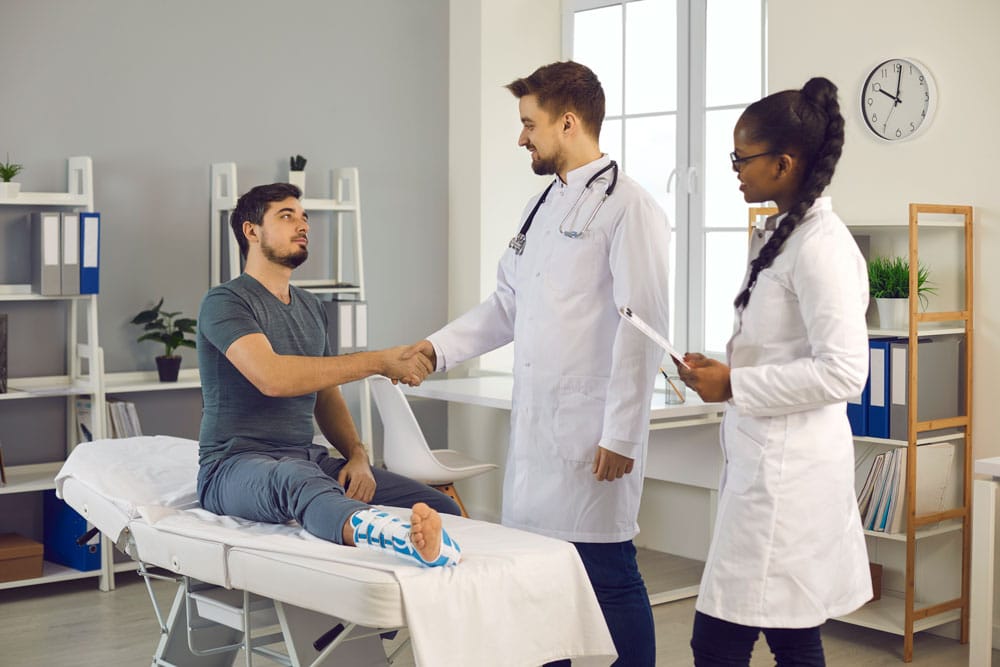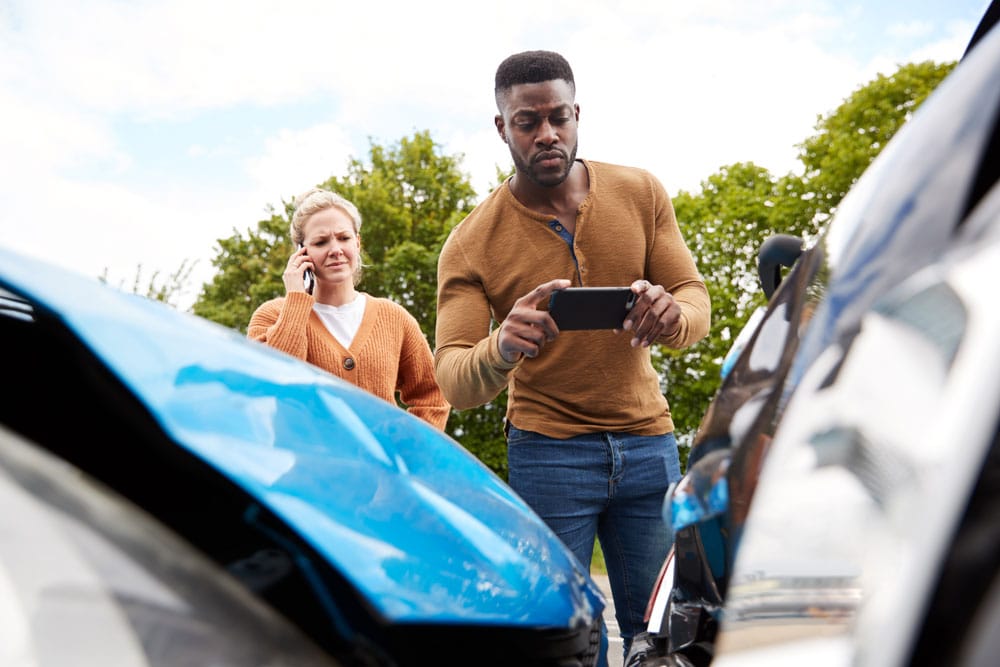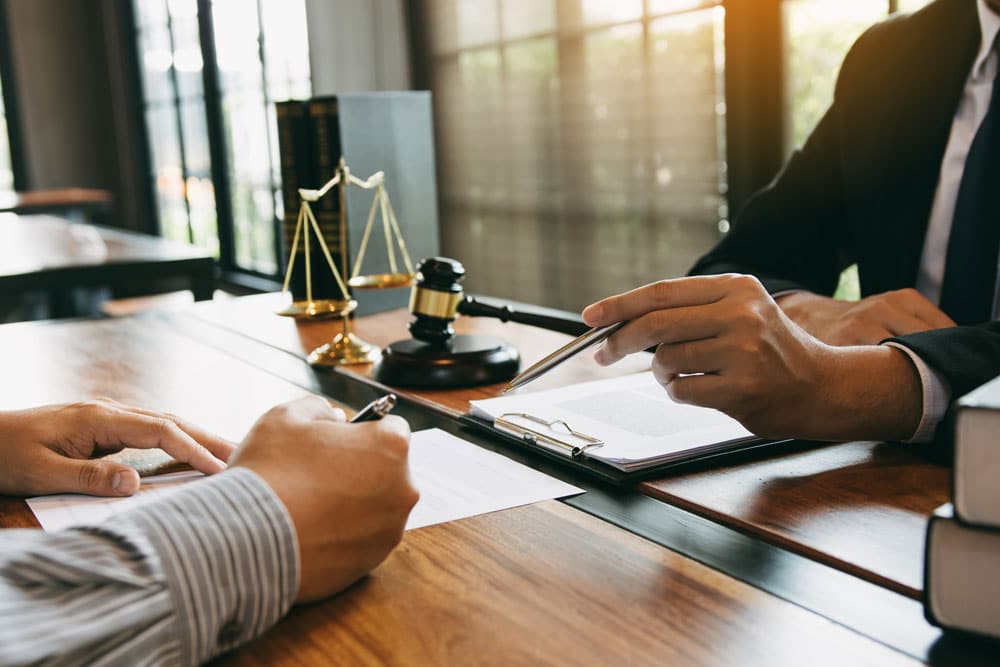5 Things You Don’t Know About Protecting Yourself After a Car Wreck, but should, because it Can Change Your Life
Anyone can get into a car wreck, but what you do after could change your life.
5 Things You Don’t Know About Protecting Yourself After a Car Wreck, but should, because it Can Change Your Life
Anyone can get into a car wreck, but what you do after could change your life.
No. 1: Go to the doctor after a car accident, even if you feel okay. Some injuries may not show right away, and it’s important to have a record of any possible injury.
After a car accident, it’s important to get medical attention, even if you feel okay. Some injuries may not show symptoms right away. For example, whiplash, a common injury in car accidents, may not have symptoms until a few days later. Also, some injuries like internal bleeding or organ damage may not be visible but can be life-threatening if left untreated.
Getting medical attention right away also creates a record of the accident. This record can be used to support any insurance claims or legal actions that may arise.
In case of an accident, call emergency services and follow their instructions, even if you feel fine. Visit a hospital or your primary care physician as soon as possible for a thorough examination. And, if you experience any symptoms that appear later, don’t hesitate to seek medical attention again.
After a car accident, it’s important to get medical attention, even if you feel okay. Some injuries may not show symptoms right away and it’s important to create a medical record of the accident that can support any insurance claims or legal actions that may arise. Call emergency services right away, visit a hospital or your primary care physician as soon as possible for a thorough examination and if you experience any symptoms that appear later, seek medical attention again. Taking care of your health and well-being is the first and most important step towards recovery and healing.
2. Take pictures of the accident and get information from people who saw it. This will help with any insurance or legal issues.
At the scene of the accident, take pictures of the damage to both vehicles and the surrounding area. This can help show the extent of the damage and who is at fault. Also, note down the location, time, and weather conditions of the accident.
Get the contact information of any witnesses who saw the accident. Their statements can supply valuable information about how the accident happened and who is at fault. Make sure to get their full name, phone number, and email address.
Write down your own account of the accident, including what happened before, during and after the accident. This information can help you remember the details of the accident and provide valuable information to your insurance company or attorney.
Keep all documents related to the accident, like medical bills, repair estimates, and any correspondence with your insurance company or attorney.
After a car accident, it’s important to document the details of the accident. Take pictures of the damage, get the contact information of witnesses, write down your own account of the accident, and keep all related documents. This information can help you file an insurance claim or take legal action and make sure you get fair compensation for any injuries or damages.
3. If you’re having trouble dealing with the accident emotionally, it’s okay to seek help. A therapist can help you process your feelings.
Being in a car accident can be a traumatic experience and it’s normal to have feelings of fear, anger, guilt, and sadness. Sometimes, people may develop a condition called post-traumatic stress disorder (PTSD) as a result of a traumatic event like a car accident. Symptoms of PTSD can include nightmares, flashbacks, and anxiety. These symptoms can be severe and can affect a person’s daily life.
If you’re struggling with symptoms of PTSD after a car accident, it’s important to get help. A therapist or counselor can help you work through your emotions and develop ways to cope.
Cognitive behavioral therapy (CBT) is a common treatment for PTSD. This therapy helps people change negative thoughts and behaviors that may be making their symptoms worse. Eye movement desensitization and reprocessing (EMDR) is another therapy that may be helpful for people with PTSD. This therapy involves recalling the traumatic event while following a therapist’s guidance to process the memory in a new way.
It’s important to remember that healing takes time. Be kind to yourself and don’t rush. If you’re experiencing severe emotional distress, like PTSD, professional help is necessary.
If you have been in a car accident and are struggling with feelings of fear, anger, guilt, and sadness, or if you have developed PTSD, it’s important to get help. A therapist or counselor can help you work through your emotions and develop ways to cope. CBT and EMDR are common treatments for PTSD. Remember, healing takes time and if you’re experiencing severe emotional distress, professional help is necessary.
4. Get a lawyer to help you understand your rights and make sure you get fair compensation for any injuries or damages.
After a car accident, it’s important to know your rights and make sure you get fair compensation for any injuries or damages. An attorney can help you with this.
An attorney can help you figure out who is responsible for the accident and help you gather evidence to support your case. They can also help you negotiate with insurance companies and represent you in court if needed.
Insurance companies are in the business of making money and they will often try to pay out as little as possible. Without legal representation, you may not get the compensation you deserve.
An attorney can also explain the different types of damages you may be able to get, such as medical expenses, lost wages, and pain and suffering. They can also explain the time limit, or statute of limitations, for filing a claim.
If the accident was caused by someone else’s carelessness or bad intentions, an attorney can help you file a lawsuit and seek compensation for your damages.
After a car accident, it’s important to know your rights and make sure you get fair compensation. An attorney can help you figure out who is responsible for the accident, gather evidence, negotiate with insurance companies, represent you in court and explain the different types of damages you may be able to get. Don’t let insurance companies take advantage of you, get legal representation and make sure you get the compensation you deserve.
5. Talk to someone about the accident, it can help to process your emotions and come to terms with what happen.
Going through a car accident can be tough. It can be hard to deal with the emotions and stress that come with it. But, there is help available.
Therapy or counseling can help you handle the aftermath of the accident. A therapist or counselor can help you talk about your feelings and help you find ways to cope. They can teach you strategies for dealing with anxiety or depression.
Cognitive behavioral therapy (CBT) is a common form of therapy that can be helpful. This type of therapy helps you understand your thoughts and feelings and how they affect you. It can help you change negative thoughts and behaviors.
Group therapy can also be helpful. Talking with others who have been through something similar can help you feel less alone. It can also give you a sense of support and validation.
It’s important to remember that healing takes time. Don’t rush yourself. Take the time you need to process your emotions and come to terms with the accident. And, if you’re feeling severe emotional distress, like PTSD, professional help is necessary.
If you have been in a car accident, know that it’s normal to feel overwhelmed and therapy or counseling can help. A therapist or counselor can teach you coping strategies, CBT can help you change negative thoughts and behaviors. Group therapy can give a sense of validation and support. Remember, healing takes time, so take the time you need to process your emotions. And don’t hesitate to seek professional help if you’re experiencing severe emotional distress.





